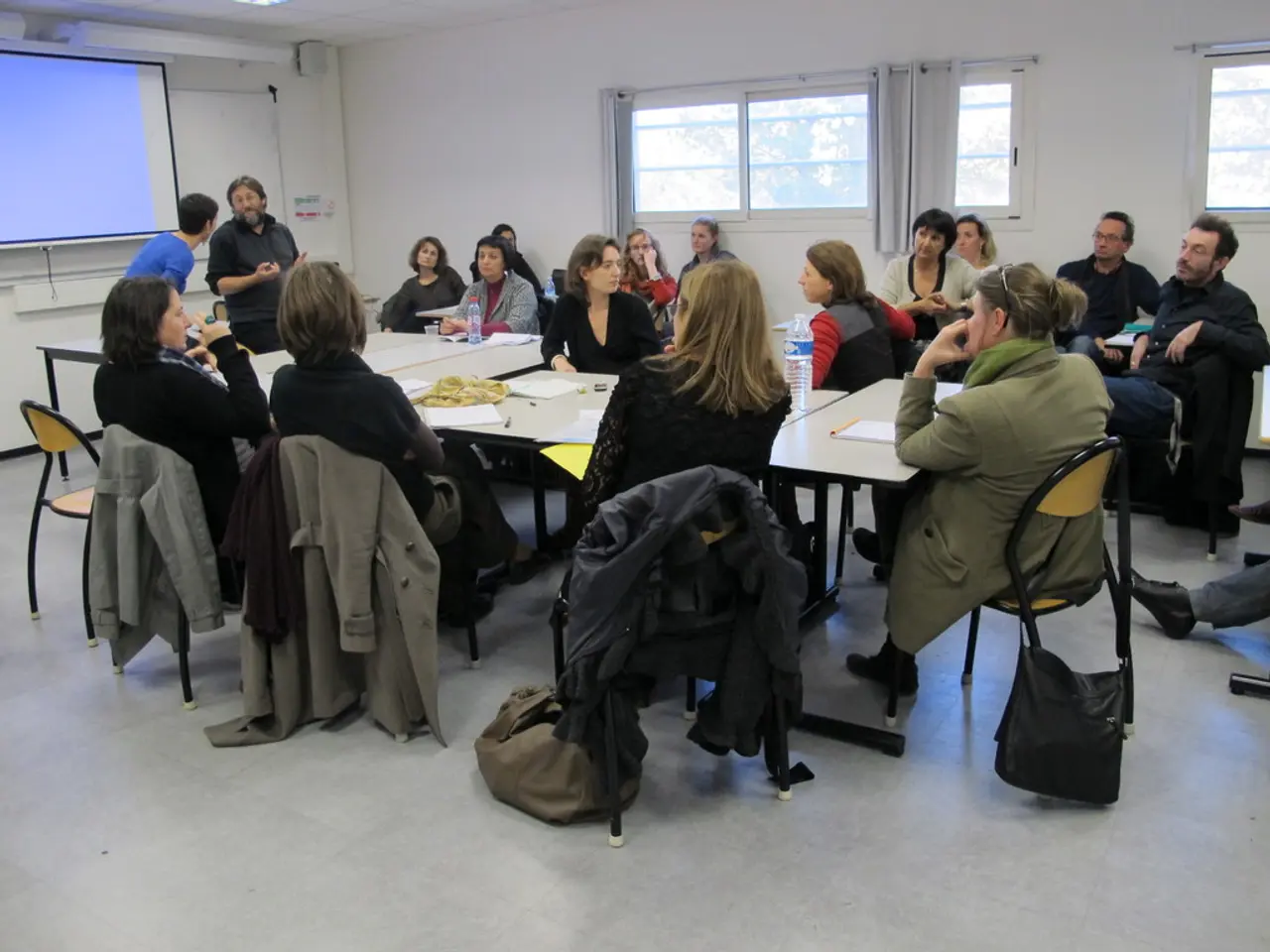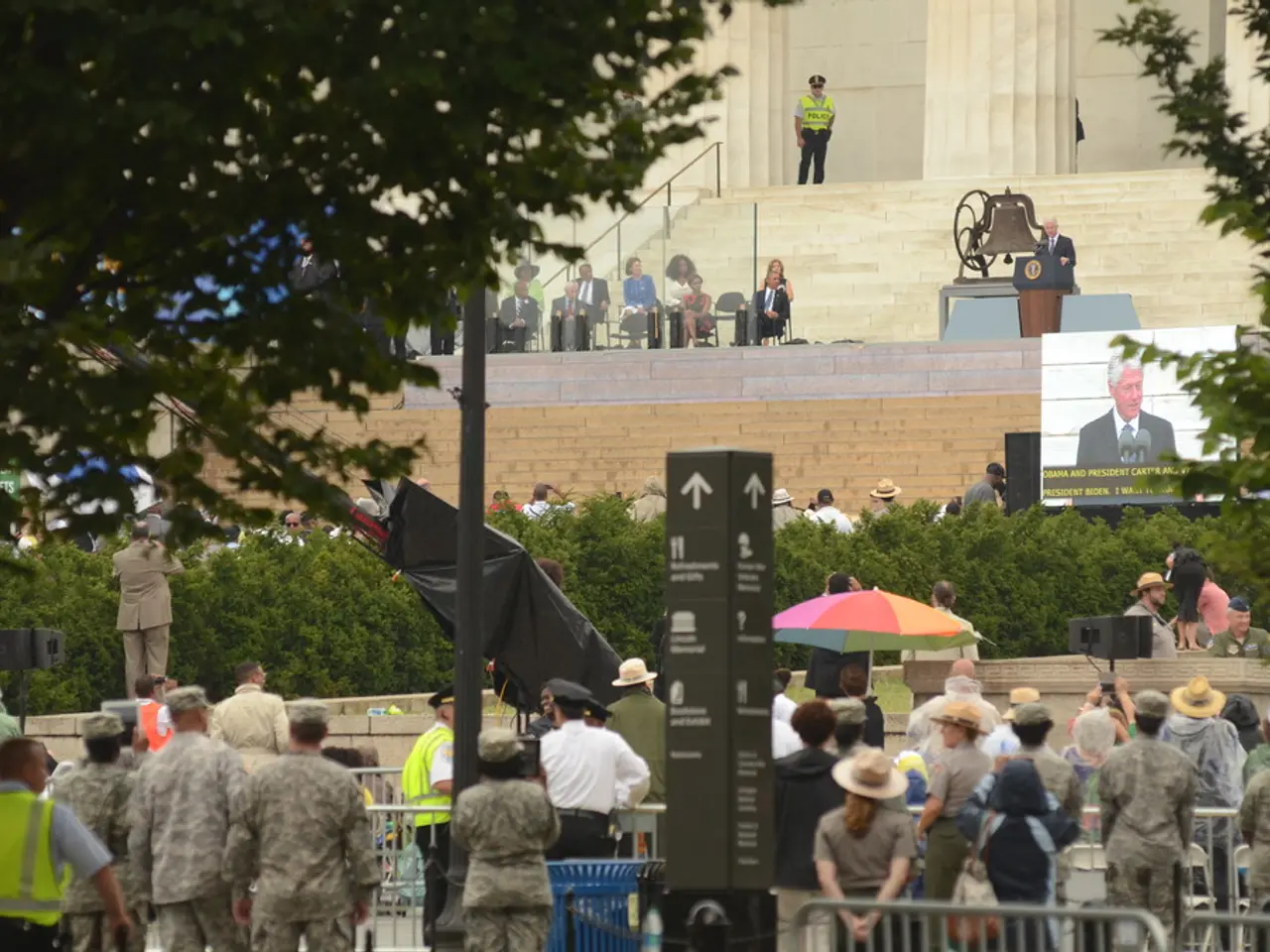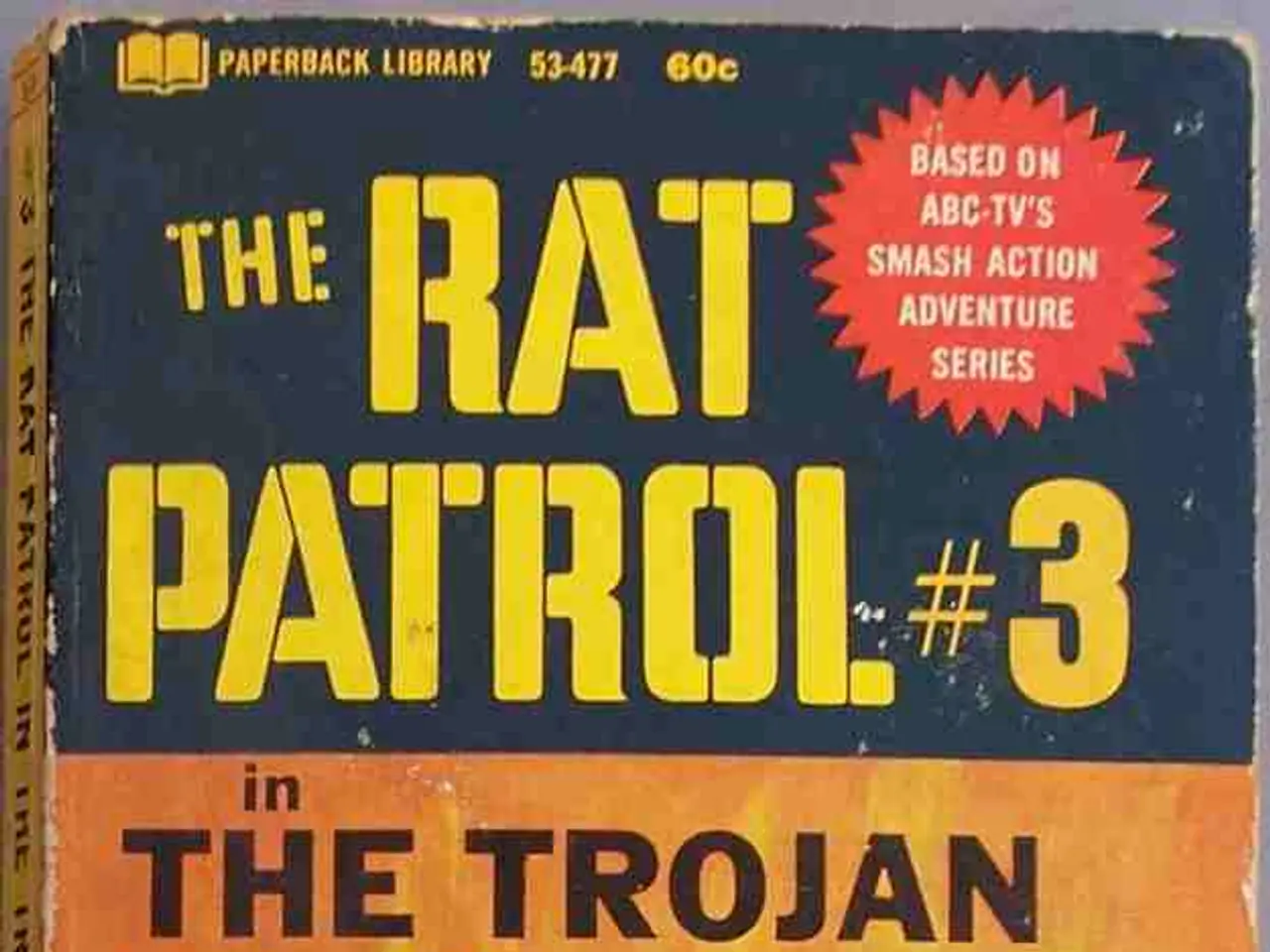World-Altering Moments Decided by a Single Vote
Ten Pivotal Moments in History Decided by a Single Vote or Individual Action
In the annals of history, there are instances where the course of events has been altered by the narrowest of margins or the decisive action of an individual. Here are ten such notable examples that have significantly shaped the trajectory of politics, civil rights, social policies, and governance structures.
- The 2000 U.S. Presidential Election The U.S. Supreme Court's 7-2 decision to halt Florida recounts effectively decided the presidency for George W. Bush, despite Al Gore winning the popular vote by nearly half a million votes.
- The Senate Election of Richard Mentor Johnson as Vice President (1837) In the 1836 election, no vice presidential candidate got an Electoral College majority, leading the Senate to choose Johnson by one vote over his rival, influencing the outcome of that administration's leadership.
- The Plessy v. Ferguson Supreme Court Ruling (1896) The 7-1 decision upheld “separate but equal” segregation laws, cementing racial segregation in U.S. law for over 50 years and impacting civil rights and social policy dramatically until overturned in 1954.
- Wyoming Granting Women the Right to Vote (1873 territory, statehood 1890) Wyoming was the first U.S. state/territory to allow women to vote, setting a precedent that influenced the 19th Amendment granting women suffrage nationwide in 1920.
- The Ratification of the 17th Amendment (1913) This amendment shifted the election of U.S. Senators from state legislatures to the public, changing American democratic processes significantly.
- The Indian Citizenship Act (1924) This act granted U.S. citizenship to indigenous peoples regardless of tribal affiliation, a landmark decision affecting Indigenous rights, though it was controversial and incomplete in practice.
- Contingent Election Attempts by the Whig Party (1836) The Whigs tried to prevent Martin Van Buren from winning outright by splintering electoral votes, which narrowly failed, highlighting how close individual state votes can shape presidential outcomes.
- Legislatures Repealing Voter-Approved Ballot Measures Recent examples like South Dakota's 2016 ethics commission initiative being voided by the legislature or D.C.’s minimum wage repeal show how individual legislative decisions can overturn direct voter mandates, altering policy trajectories.
- Supreme Court Ruling Excluding Japanese and Asian Indians from Citizenship (1922-23) This judicial decision marked a significant racial and immigration policy shift affecting thousands.
- The U.S. Senate's Approval of the Acquisition of Alaska from Russia (1867) The deal was negotiated by Secretary of State William H. Seward for $7.2 million and was initially mocked as "Seward's Folly." Critics argued that Alaska was unfit for settlement or development, but Seward believed it was strategically and economically advantageous.
These examples underscore how individual votes or legal decisions—from a single court justice’s vote to a key legislative action—can alter political leadership, civil rights, social policies, and governance structures at critical historical junctures.
Elsewhere, key strategic locations played a significant role in shaping the course of history.
- Alaska during World War II and the Cold War Alaska became a key strategic location during World War II and the Cold War, bolstering America's national defense. Rich in resources such as oil, gold, and fisheries, Alaska has proven vital to the U.S. economy.
- The Texas Railroad Commission's Decision (1931) The Texas Railroad Commission imposed strict production quotas on oil in 1931, saving countless small oil producers from financial ruin. This decision created a regulatory model that influenced oil policies globally.
In moments of crisis, the actions of individuals can have profound consequences, as exemplified by the following instances.
- Vasili Arkhipov's Decision during the Cuban Missile Crisis Arkhipov, a Soviet naval officer, prevented the launch of nuclear torpedoes during the Cuban Missile Crisis by casting a dissenting vote, likely averting catastrophic nuclear conflict.
- Senator Edmund G. Ross's Vote The deciding vote came from Senator Edmund G. Ross, who broke with his party to vote against the conviction, saving President Andrew Johnson from removal from office by one vote during his impeachment trial in 1868.
These instances underscore the fragility of global peace during the Cold War and the profound responsibility of individual decision-makers in moments of crisis. Furthermore, the effects of significant decisions, such as the passage of Proposition 13 in 1978, continue to be felt today, shaping debates about fiscal policy and the provision of public services, infrastructure, and local governments.
- In the realm of entertainment, technology, and general news, a single laptop belonging to a CIA agent was discovered by a Russian hacker in 2014, revealing classified information and sparking global concerns about cybersecurity and privacy.
- The 'Top 10' scientific discoveries in history often involve a single groundbreaking idea or experiment. For instance, Albert Einstein's theory of relativity in 1915 redefined our understanding of space, time, and gravity.
- The history of war-and-conflicts is riddled with instances where individual actions have had lasting impacts. Perhaps most notably, Japanese Admiral Yamamoto's statement, "I fear all we have done is to awaken a sleeping giant and fill him with a terrible resolve," was prophetic in the aftermath of the bombing of Pearl Harbor in 1941.
- Policy-and-legislation, too, have been influenced by single acts. For example, Margret Sanger's opening of the first birth control clinic in the United States in 1916 challenged societal norms and paved the way for the sexual revolution and modern family planning policies.






